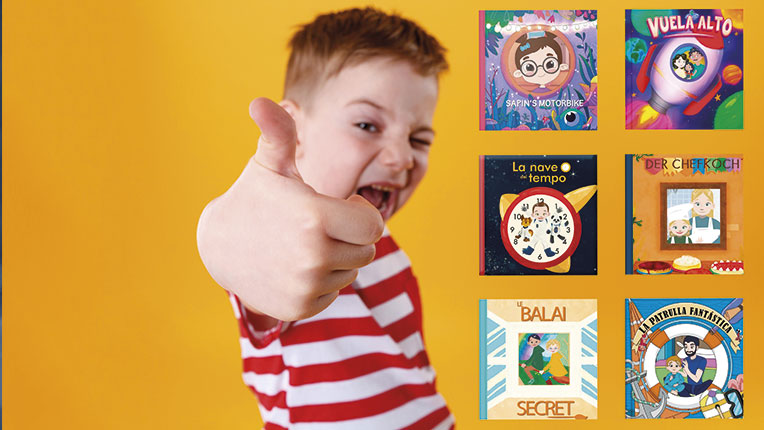Stories have always been a valuable tool for teaching children about the world around them. For as far back as we can remember, parents and educators have used stories to convey important values and teachings to children. Traditional stories such as “Cinderella,” “The Ugly Duckling” and “Snow White” have been part of popular culture for generations, but in recent years personalised stories have gained popularity. What are some of the many advantages of personalised stories over traditional stories?
They encourage imagination and creativity
Personalised stories offer greater creative freedom than traditional stories, as they can be adapted to the interests of each child. By having characters and situations that are familiar and close to them, it is easier for children to imagine and create their own story. This helps them develop their imagination and creativity, which will be of great help in their academic and professional future.
They promote positive self-esteem
By having children as the main characters in the story, personalised stories make them feel special and unique. This can help improve their self-esteem and self-confidence. In addition, the fact that the characters in the story have similar skills and qualities to the children makes them feel capable and motivated to develop further.
They encourage reading
Personalised stories can be a great way to motivate children to read and become interested in literature. By having characters and situations that are relatable, it is easier for children to connect with the story and maintain their interest in reading. Also, because they are personalised, children can feel a greater emotional connection to the book, which can encourage them to make reading a habit.
They enhance the relationship between parent and child
Creating a personalised story can be an activity that parents and children do together. By involving children in the creative process, it encourages communication and interaction as a family. In addition, a personalised story can make children feel like they have a special connection with their parents, which can strengthen the emotional bond.
Adapted to the needs of each child
Personalised stories allow you to adapt to the needs of each child, whether in terms of reading level, skills or interests. This can be especially useful in the case of children with special educational needs or those who are going through a difficult period, as the story can be adapted to make it easier for them to understand or to deal with topics that will help them overcome that situation.
Greater diversity and representation
Personalised stories can reflect greater diversity in terms of gender, race, or sexual orientation. This can be especially important in shaping children’s identity and values, as it shows them a more inclusive and diverse world.
Development of emotional skills
When personalised, stories can include situations that help children understand and manage their emotions. For example, if a child is afraid of the dark, a situation can be included in which the character in the story has to overcome that fear. This can help children develop emotional skills and better understand their own feelings.
In conclusion, personalised stories have many advantages over traditional stories. They offer a closer and more engaging experience for children, as they can be the protagonists of the story and feel represented by the characters. In addition, personalised stories foster children’s creativity, imagination and positive self-esteem, as they allow them to explore their own ideas and feelings.
Another important advantage is that personalised stories can be a valuable tool for addressing difficult or sensitive topics with children, such as divorce, illness or bullying. By personalising the story, parents or educators can tailor the message and language to the age and maturity of the child, making it easier to understand and address the topic.
Finally, personalised stories also offer an opportunity to create lasting memories and emotional bonds between parents and children. A unique, personalised story encourages dialogue and communication between both parties, which can strengthen the relationship and emotional ties.
In summary, personalised stories are a great, invaluable way to encourage reading and education in children. They offer a more relatable and engaging experience for children, encourage creativity and imagination, and can be a useful tool for addressing difficult or sensitive topics. They also create lasting memories and strengthen bonds between parent and child. For all these reasons, personalised stories are very much worth considering as an option when considering both a child’s education and fun activities.
